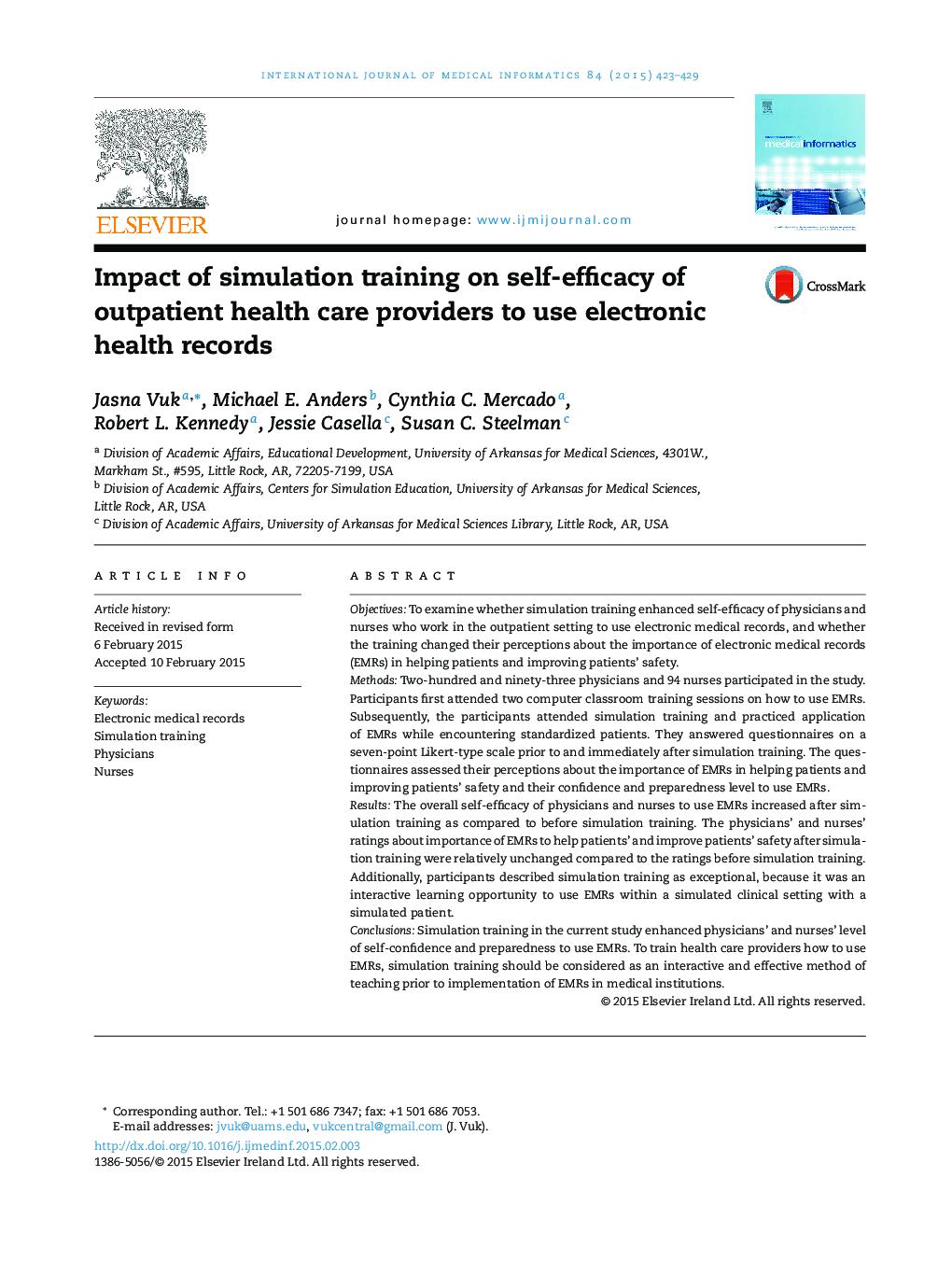| کد مقاله | کد نشریه | سال انتشار | مقاله انگلیسی | نسخه تمام متن |
|---|---|---|---|---|
| 516106 | 1449110 | 2015 | 7 صفحه PDF | دانلود رایگان |
• We report use of simulation for electronic medical record (EMR) systems training.
• Simulation increased self-efficacy of outpatient healthcare providers to use EMRs.
• Simulation did not increase the already high expectations about the impact of EMRs.
• Standardized patients and EMR training environment offered interactive learning.
• Physicians and nurses reported a positive view about simulation for EMR use.
ObjectivesTo examine whether simulation training enhanced self-efficacy of physicians and nurses who work in the outpatient setting to use electronic medical records, and whether the training changed their perceptions about the importance of electronic medical records (EMRs) in helping patients and improving patients’ safety.MethodsTwo-hundred and ninety-three physicians and 94 nurses participated in the study. Participants first attended two computer classroom training sessions on how to use EMRs. Subsequently, the participants attended simulation training and practiced application of EMRs while encountering standardized patients. They answered questionnaires on a seven-point Likert-type scale prior to and immediately after simulation training. The questionnaires assessed their perceptions about the importance of EMRs in helping patients and improving patients’ safety and their confidence and preparedness level to use EMRs.ResultsThe overall self-efficacy of physicians and nurses to use EMRs increased after simulation training as compared to before simulation training. The physicians’ and nurses’ ratings about importance of EMRs to help patients’ and improve patients’ safety after simulation training were relatively unchanged compared to the ratings before simulation training. Additionally, participants described simulation training as exceptional, because it was an interactive learning opportunity to use EMRs within a simulated clinical setting with a simulated patient.ConclusionsSimulation training in the current study enhanced physicians’ and nurses’ level of self-confidence and preparedness to use EMRs. To train health care providers how to use EMRs, simulation training should be considered as an interactive and effective method of teaching prior to implementation of EMRs in medical institutions.
Journal: International Journal of Medical Informatics - Volume 84, Issue 6, June 2015, Pages 423–429
